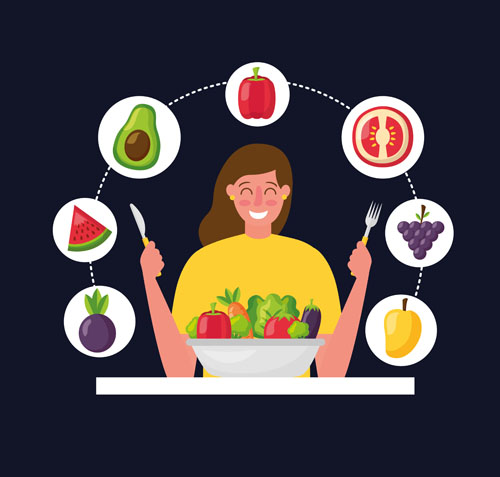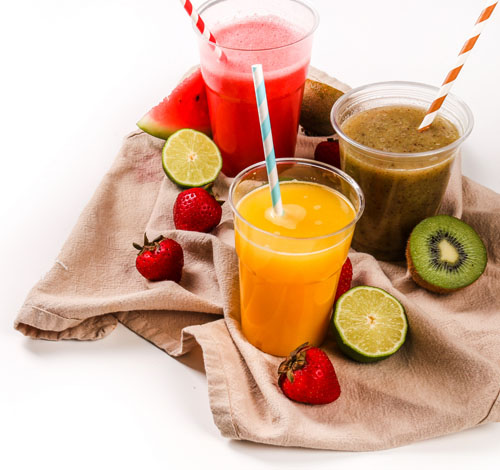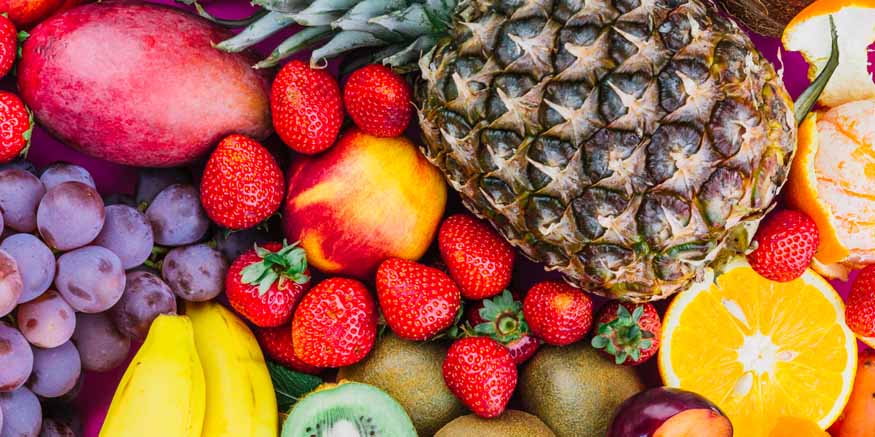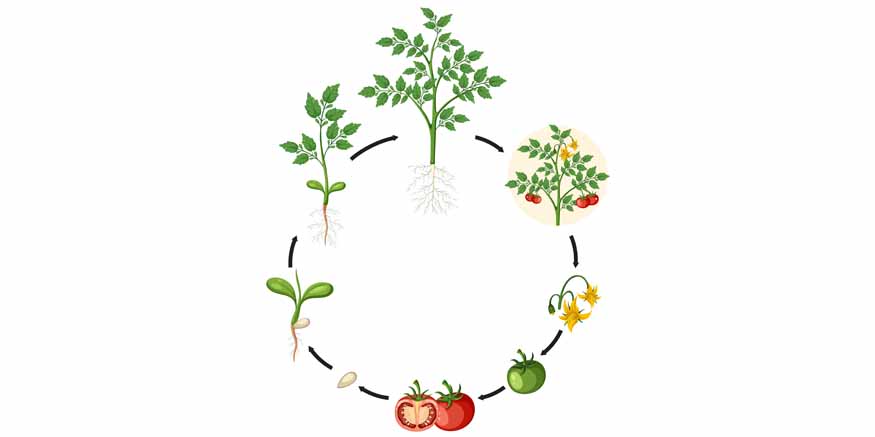Parents often worry about their children not eating any fruits or being picky with the food. They constantly try their best to feed fruits to their kids in several creative ways. Apart from just inculcating a habit of eating fruits, the parents also have to ensure that their kids eat a variety of fruits and not stick to one. This ensures kids receive proper minerals and vitamins for their growth.
Let us dive into understanding the nutritional benefits of fruits and how each of these fruits plays a vital role in boosting mental and physical health.
Importance of eating fruits
There are numerous health benefits that we can derive from fruits. Kids need to eat them during their growth phase. Eating fruits during childhood can create a strong health base for the future. Exposing kids to a variety of fruits during their early childhood can have several benefits that they will continue to reap even into their adulthood.

As your child grows from a baby to a preschooler, they need plenty of nutrients for their overall growth. Fruits contain essential nutrients like vitamins, minerals, potassium, dietary fibre, water, and natural sugars, which are crucial for their early development.
Health Benefits of fruits
- Rich in Vitamins
- High source of Fiber
- Energy Booster
- Promotes Hydration
- Supports Cognitive Development
- Strengthens Bones and Teeth:
- Boosts Immunity
- Healthy Snack
- Maintains Body Weight
Fruits are natural vitamin sources that provide children with many essential vitamins. From vitamin C in oranges and strawberries to vitamin A in mangoes and apricots, adding a different fruit into your child’s diet supports overall growth, immune system function, and vision.
Fruits are an excellent source of dietary fibre, essential for maintaining healthy digestion in children. Fibre-rich fruits like apples, pears, and berries promote regular bowel movements, prevent constipation, and contribute to a healthy digestive system.
The natural sugars in fruits, such as fructose, provide active kids a quick and sustained energy boost. Unlike processed sugars in many snacks, the natural sugars in fruits come packaged with fibre, vitamins, and antioxidants, offering a healthier alternative for sustained energy levels.
Most of the fruits have a high water content, thus contributing to overall hydration. Watermelon, oranges, and berries are a few of many fruits that keep your kids hydrated. Being hydrated is vital for the overall health and well-being of the children.
Blueberries and grapes contain antioxidants that contribute to children’s cognitive development. These antioxidants protect brain cells from oxidative stress, potentially enhancing memory, concentration, and overall cognitive function.
Fruits like oranges, kiwi, and strawberries are rich in vitamin C, which is crucial in collagen synthesis. Collagen is essential for bone formation, teeth, and connective tissues that contribute to the overall development of a child’s skeletal system.
Fruits help in strengthening the immune system as they have vitamins, minerals, and antioxidants in. Fruits such as lemon (rich in vitamin C), papaya (containing vitamin A), and kiwi (packed with vitamin K) contribute to boost childrens’ defence mechanism against infections and illnesses.
Offering fruits as snacks to kids from a young age helps them develop good eating habits. Instead of choosing sugary and unhealthy processed snacks, children can enjoy the natural taste and health benefits of fruits.
Adding different fruits to your child’s diet helps keep their weight in check. The fibre in fruits helps them feel full, which will stop them from overeating or choosing unhealthy snacks. Additionally, the natural sugars and nutrients in fruits make them a great option for staying healthy.
Benefits of Fruits for Kids – List
Fruit Type | Fruits List | Benefits |
Yellow and orange fruits | Orange, grapefruit, banana, mango, peaches, pineapple, Persimmons, Papaya, starfruit, Nectarines | Rich in beta carotene and good for the eyes of child |
Red fruits | Tomato, apple, cranberry, strawberries, watermelon, plums | Sources of powerful antioxidants and vitamins. Good for heart health |
Green coloured fruits | Green apple, guava, kiwi, pear, grapes, melon, lime, custard | Rich in calcium. Supports bone health and growth. |
Seasonal fruits | Jackfruits, mango, lychee, cherry, pineapple, strawberry. | High in nutritional value because they are fresher and consumed closer to the harvesting period |
Daily Fruit Chart for Kids by Age
Age/Gender | Serving size (in cups) |
2-3 years | 1 |
4-8 years | 1.5 |
9-13 years | 1.5 |
14-18 year boys | 2 |
14-18 year girls | 1.5 |
3 fun ways to serve fruit to kids
- Smoothies
- Fruit snacks
- Creative serving
Use fresh or frozen fruit to create a tasty smoothie for a healthy breakfast or mid-day snack.

Let your child assist you in making healthy fruit recipes and engage them in cooking.
Cut the fruits into fun shapes or make snacks that kids can enjoy and develop a liking towards fruits. Playing with food is a fantastic way to get children, especially those who are picky, excited about trying new fruits.

Conclusion
Fruits are gifts from nature, packed with many vitamins that are beneficial for growing children. By incorporating a variety of fruits into their diet, kids can enjoy a range of nutrients that contribute to their overall health, development, and well-being. As we encourage the exploration of diverse fruits, we pave the way for a generation of young minds to thrive with nature’s wholesome goodness.
For more such informative/interesting blogs, Visit Mother’s Pet Kindergarten.













Recent Comments